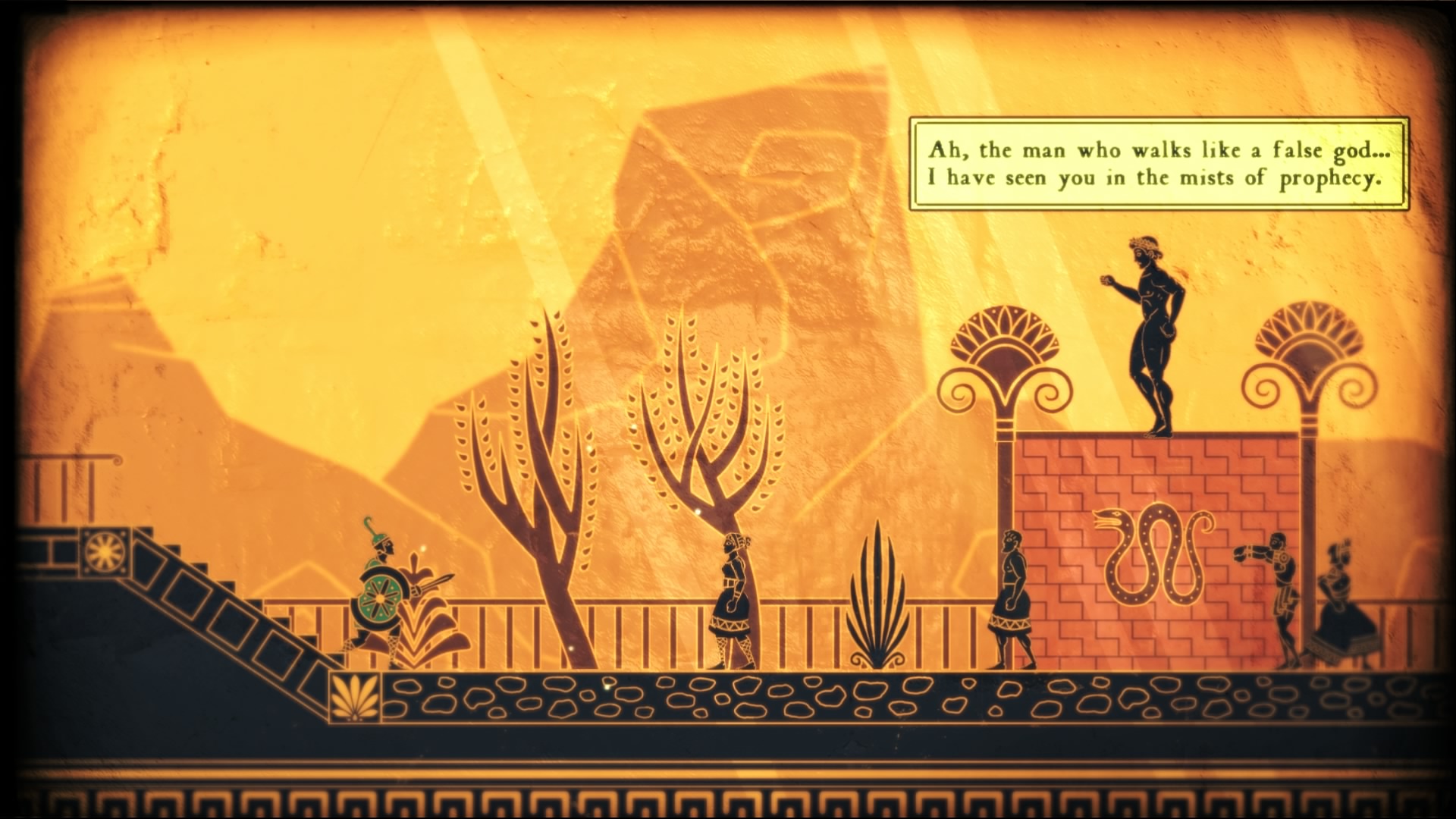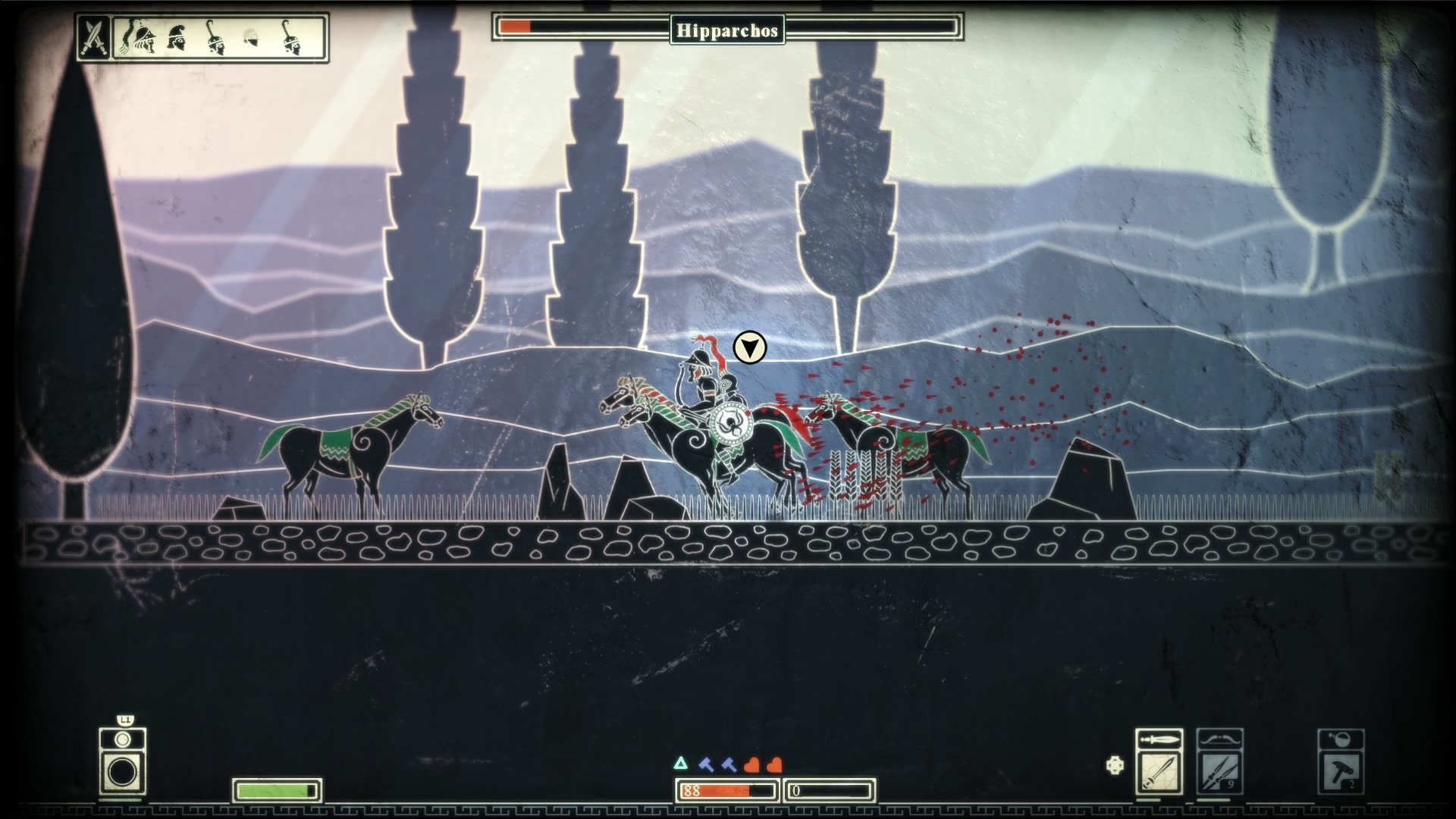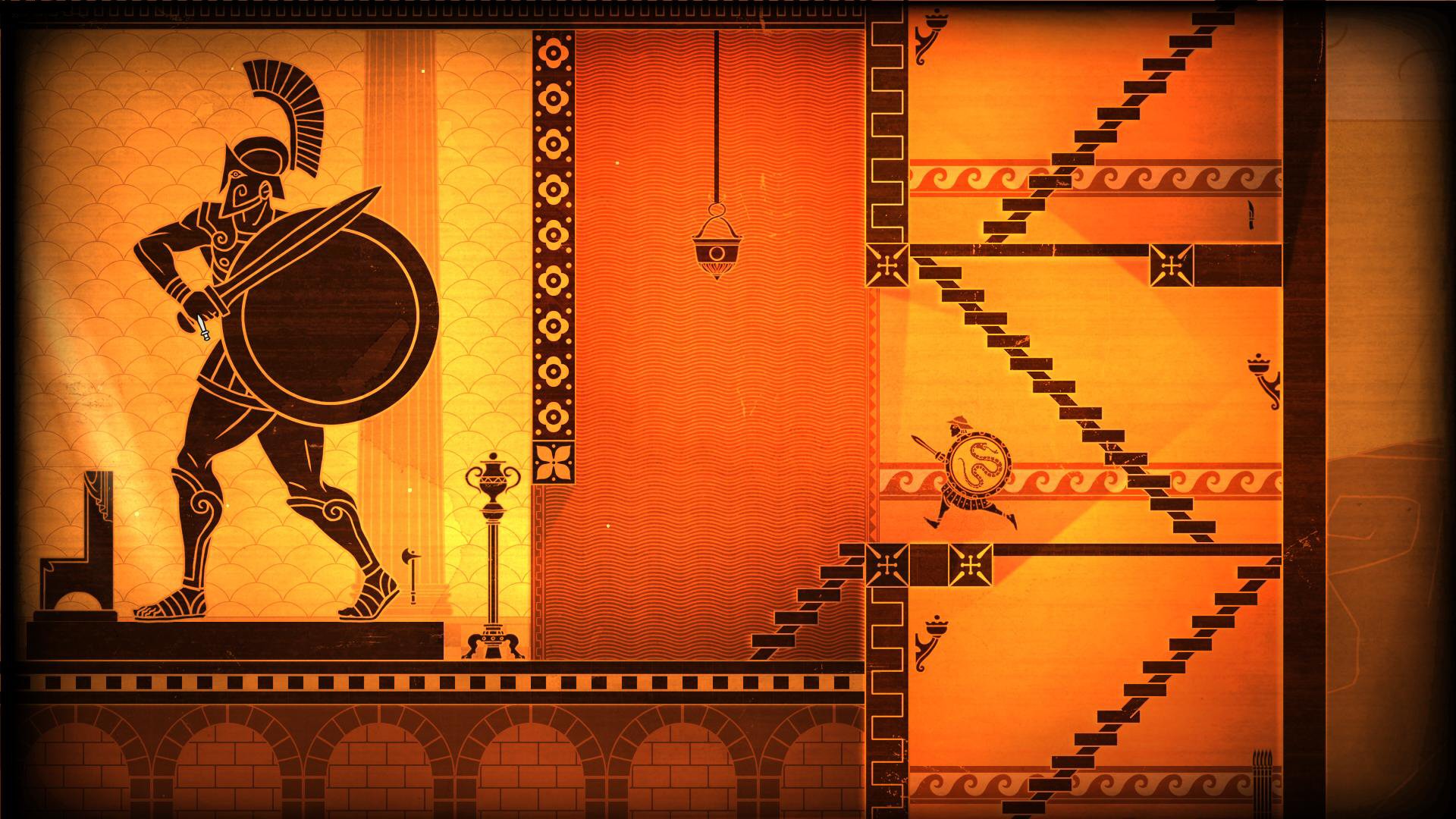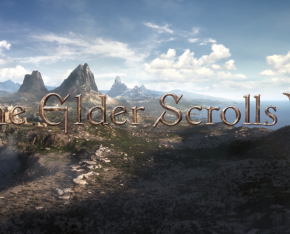By Paolo Succi on February 17, 2015 at 9:53am
Guys, I’ll be honest, I was never a great student. I look back on university and lament those late nights rushing last-minute papers or skipping class for Smash Brothers marathons. That said, “Apotheon’s” foray into Greek mythology really makes me wonder how I slept through my ancient history classes. Developer Alien Trap’s latest title is a beautiful tour through epic tales of spiteful Gods, political treachery, and an exploration of human nature. Despite all the other issues I had with the game, it really conveys just how damn cool ancient history can be.
The narrative conceit plays on Zeus’ and his godly cronies’ abandonment of mankind. Zeus’ apocalyptic thunderbolts rain down from the sky and it’s up to you to stop them. Despite the wealth of captivating Greek mythology explored in the campaign, the protagonist you play is given a name (Nikandreos), and really… not much else to identify with. In spite of this, Alien Trap’s blank canvas approach really worked well in this instance, as battles with Kings and Gods felt all the more epic framed in this David vs. Goliath context.

Your first glimpse of “Apotheon” instantly tells you how effective cohesive world building can be in games. The art style appears to be ripped directly from an ancient Greek pottery exhibit at the Smithsonian. It’s this aesthetic mixed with all the other elements together that really make “Apotheon’s” presentation shine. Lore touchstones and the well-acted NPC dialogue are your only links to filling in narrative context. The world feels vast (if not a little visually repetitive at times) and lifelike. Guards will respond to you smashing pots or tables, threatening gold fines or even death. It’s all these components together that draw you into “Apotheon’s” world - no small feat for a 2D platformer.
With that thoughtful approach to the game’s presentation in mind, it’s a wonder why the gameplay feels so clunky. My gorgeous journey through “Apotheon” was constantly at odds with the cumbersome UI and awkward controls.
First, the good. “Apotheon’s” campaign takes you on a tour through Ancient Greek Gods, being sure to vary the gameplay along the way in step with their defining characteristics. Poseidon’s quests have you traversing oceans, Athena, the goddess of wisdom requires solving a series of puzzles, and Ares, god of war, pits you in a gladiator-style combat arena. These mix-ups keeps the campaign fresh and exciting, you never really know what to expect.
As much as it has become cliché to compare games to “Dark Souls,” the comparison here is particularly apt. “Apotheon’s” combat requires a metered approach to downing foes. You have to take careful consideration for weapon swings, roll dodges, and use of projectiles. For the most part, the AI is no slouch, making clever use of the environment and is quick to raise its shield to deflect your attacks. When the action is at its best, it provides for tense melee skirmishes.
The “Dark Souls” comparison does break down at some point however. While clearly inspired by From Software, Alien Trap couldn’t quite nail the fluidity in “Apotheon.” Battles oftentimes will degrade into a frenzied bloodbath, with Nikandreos desperately flailing his weapon hoping to catch on any enemy’s skull. Consider this fair warning, the chaos does waffle frequently between immensely satisfying and incredibly frustrating.
The game does take an interesting approach to weapon management. The gear runs the gamut of weapons typically associated with Ancient Greece. You’ll brandish spears, bows, explosive vases, and many other items that wouldn’t feel out of place in the movie “300.” While the weapons do have a durability meter seen in many other action RPGs, you’ll quickly notice these are much more fragile. In this sense, the weapons function much more like ammo in an FPS than a primary weapon you’ll hold for large portions of the game.
This system would have been much more effective if it weren’t for the horrendous UI. On the one hand, the diverse weapons mean you’re always on your toes in the middle of battle. Each item plays very differently depending on the weapon class, so you’re constantly adapting your playstyle throughout the course of the campaign. Unfortunately, your weapon selection isn’t a radial menu, or pick-3 favorites type of system, instead all items just gather in a cumbersome list in the screen’s lower-right. When a weapon breaks, it just slides to the next one, making the weapon diversity more curse than blessing. It’s jarring to be in the middle of a boss fight to have your axe break and your primary hand default to a dagger.

Compounding matters, there is very little inventory management to speak of. Being able to better compare item stats without opening the pause menu, or marking items as favorites would mitigate the guesswork. I often just accepted whatever weapon slid into my hands after breaking one because I couldn’t be bothered to disrupt the flow pausing the game.
“Apotheon” is by no means the first game to mine the rich narratives of Greek mythology, but if nothing else, Alien Trap has done an excellent job in communicating tone and setting associated with these epic tales. Unfortunately, the stunning art direction is bogged down by the clunky user interface and frenzied combat. That said, I definitely see “Apotheon” as a potential foundation for something bigger in future installments.









